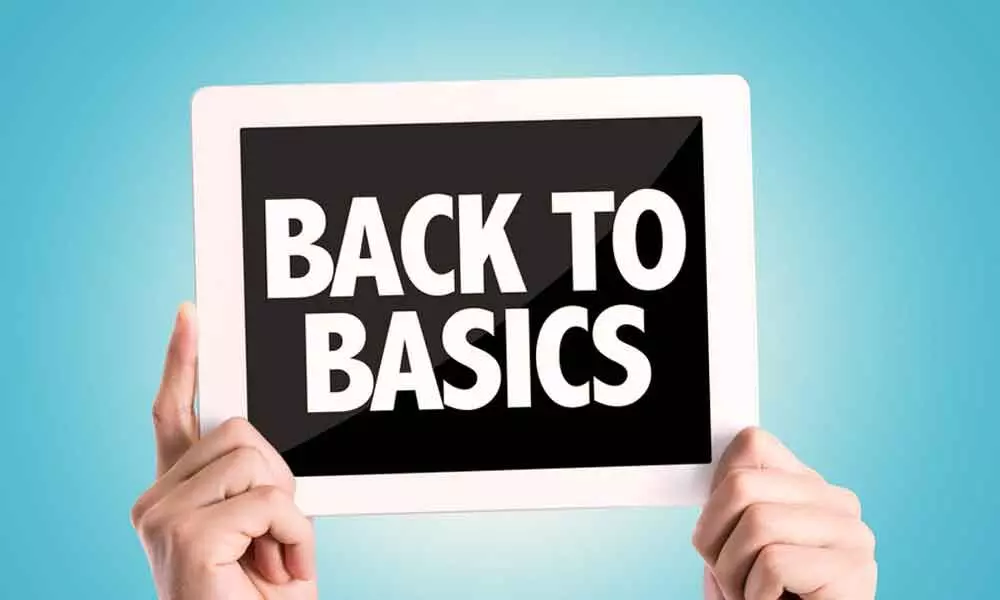Back to basics

The success of any venture, be it a project, a goal or your entire life depends entirely on your ability to successfully execute the actions that will produce the result. Action will create success far more than planning, creativity or inspiration can even approach. A beautiful idea, strategy or goal is worth only as much as the action that can follow it.
Complex plans are far more likely to fail than a simple strategy. Similarly, it is the most fundamental and basic tools and ideas that really affect the quality of our lives. Focusing on improving the irrelevant minutia is not nearly as significant as improving the key things we do every day. Success, therefore, comes from mastery of the basics.
Reducing complexity and emphasizing a simple and easily executable strategy is the smartest way to operate. In all of the goals and trials I have conducted I can almost chart their success and failure based on this exact principle. Complexity has killed more of my goals than any other factor including fear, apathy or laziness combined. Plans are far easier to execute in the mind than in the real world.
Similarly to a simple strategy for success is mastering the basics that go into that strategy. Once your strategy is isolated down to a handful of continuously used and repeated skills, mastering those skills to a high degree makes your planning even more effective. Mastering all of the minor concepts in a very diverse and complicated strategy is almost impossible which makes pursuing those ideas even riskier.
The recent work of Dr. K. Anders Ericsson has shed some light on exactly how the process of mastery is achieved. By looking at Ericsson's research and my own personal experience I believe there are four steps towards mastery. By utilizing these four steps in a sequence you can begin to master any skill. As Ericsson's research suggests, talents are often based far more on conscious practice than genetic or hereditary advantages. By utilizing these four steps with continuous practice you can rapidly improve your mastery of the basics.
The first step is to decide exactly what the basic skills are. A decision is a definite requirement to move forward. With your simple strategy in hand, you need to identify what key skills are necessary to its successful execution. For blogging you might decide that the key skills are writing and researching your subject. For running you could decide that pacing and posture are the key skills. For a new diet, you could identify preparing healthy foods as a key skill. Deciding what the key skills necessary for your success are will allow you to begin mastering those skills.
The second step is to practice constantly. As Ericsson's research revealed, extremely talented people in any field often had no real distinguishing characteristics on a basic level. Chess Grand Masters were shown to have no higher level of IQ than regular chess players, and their ability was directly related to their high familiarity and experience with chess moves. By practicing those core skills repeatedly you can gain more experience.
The third step is to get immediate feedback. Although the first two steps may have been obvious, this is an important step most people miss. Immediate feedback is critical to improving any skill.
Source: www.scotthyoung.com

















